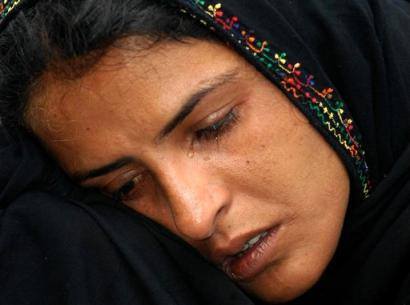 Sermons
Sermons
Untitled
Two
years ago, our niece got a new game for Christmas: Harry Potter,
Hogwarts Battle. We usually spend New Years together, and it is a
great 4 person game, so Kevin and I got to break into the game with
our niece and her mother. It is now fair to say that this is our
favorite game, and the four us clocked A LOT of hours playing it.
Beyond
the really fun Harry Potter connections, and the truly excellent game
design, I think we all love it so much because it is a collaborative
game. The players are all working together towards a goal, so in the
end either everyone wins or everyone loses. Which also means that no
one of us ends up as the winner while the rest of us have lost.
Truthfully, I really like board games, and most of the ones I play
have winners and losers, and I’m generally OK with that, but there is
something really great about a collaborative game. It is especially
engaging because each choice we make impacts each other player, so we
have to pay attention to what each person needs and what each
person’s strengths are, and how each person can make the best use of
their strengths.
The
game is hard, and we lose sometimes. Really, we lose about half of
the games we play, and we sometimes give up a game before playing
just because the starting conditions are too difficult. But the
collaboration makes it interesting enough that even losing isn’t THAT
bad. (Most of the time.)
I
find it interesting that the collaborative game is so much fun. When
I was growing up our church had a copy “The Ungame” which was
mean to be a fun game that was collaborative rather than competitive,
and while I fully support the creators and their intentions it was
the least fun game imaginable. Yet,
there is so much already in our capitalistic society that is
inherently about winners and losers, and zero sum games, and
competing against each other – and I’m really, really glad that
there are now super fun games that don’t buy into that model.
Collaborative
games seem more like the model of working for the common good. Maybe
it is just because I was born and raised in the Commonwealth of
Pennsylvania, but the moment when I finally actually noticed the word
“commonwealth” and thought about what it meant was eye-opening
for me. I think of the common good and commonwealths as other ways
of speaking about the kindom.
Over
the past 3+ years we’ve talked about Intersectional Justice and
Intersectionality a lot, but just in case the ideas are still fuzzy
for you, here is MFSA’s definition of its “intersectional
organizing principal.”
All experiences of marginalization
and injustice are interconnected because the struggle for justice is
tied to concepts of power and privilege. Intersectional organizing
recognizes that injustice works on multiple and simultaneous levels.
Because experiences of injustice do not happen in a vacuum, it is
imperative to: develop the most effective strategies to create space
for understanding privilege; organize in an intersectional framework
led by marginalized communities; and build effective systems of
resistance and cooperation to take action for justice. Practical
intersectional organizing always focuses on collaboration and
relationship building.
To
bring that a little bit more into reality, intersectionality means
acknowledging that working on ONE issue and making as small as
possible so you can make some gains really doesn’t help that much.
For example, it is said that 101 years ago women gained the right to
vote in NY state, that misses that it only applied to white women.
That came from a choice to empower white women at the expense of
women of color and was NOT intersectional organizing. There have
been a LOT of times organizing has worked this way, most of the time
it has worked this way, and it has done a lot of harm.
During
an anti-white supremacy training, I was taught to think holistically
about power. That is, we all know what traits are most associated
with power in our society: white, male, rich, straight, English
speaking, cisgender, citizen, with a full range of ableness,
educated, tall… etc, right? In each case, there is an opposite to
the description that is disempowered. I’m expecting you are
following thus far. Well, because the people who have the traits
connected to power control the resources, they use most of them! And
then, it turns out, the people who are DISCONNECTED from power end up
fighting to get access to the scraps of resources that the powerful
are willing to share. There are two
REALLY bad parts of this – first of all, to get access to those
resources usually means playing by the rules of the ones who have
power, and secondly, those without power are usually set up to fight
AGAINST EACH OTHER for access to those scraps.
That
is, when white women decided to try to get the vote for themselves,
and not seek voting rights for all women, they made a decision to
play by the rules of how power already worked, and to distance
themselves from people of color to try to get what they wanted and
needed. And, this happens time and time again.
Intersectionality
is about seeing the wholeness of the power dynamics, and the
complicated realities of people – who all have power in some ways
and lack power in others – and holding the whole together while
working for good. It is really, really hard.
It
is probably also why I teared up when reading Isaiah this week. The
passage quotes God as saying, “It is too light a thing that you
should be my servant to raise up the tribes of Jacob and to restore
the survivors of Israel; I will give you as a light to the nations,
that my salvation may reach to the end of the earth.“ The way I
heard that was, don’t just work for the benefit of a few, even if
they are the ones you identify with – work for the well being of
ALL. And all, in all places, including enemy nations!!
Rev.
Dr. Martin Luther King Jr. is best known for his transformational
work on racial justice, work that make our country noticeably better.
Yet, at the end of his life, he had broadened his work, and was
organizing around poverty. As several of the past year’s
Intersectional Justice Book Club books have pointed out, the powers
that exist in the United States have VERY INTENTIONALLY used race to
divide people, in large part so that impoverished white people and
impoverished people of color wouldn’t start working together against
their common oppressor. Dr. King’s Poor People’s Campaign was
designed to bring people together for their common good, and truly
for every’s good. As King once said, “In your struggle for
justice, let your oppressor know that you are not attempting to
defeat or humiliate him, or even to pay him back for injustices that
he has heaped upon you. Let him know that you are merely seeking
justice for him as well as yourself.” Because, truly, oppressing
anyone harms both the oppressed AND inherently, the oppressor.
Today,
other’s have picked up Dr. King’s mantle, and there is an active Poor
People’s Campaign underway. While their “Fundamental Principals”
are expansive – there are 12 – they are a coherent whole and I
couldn’t edit them down. I want you hear, and be filled with hope,
and maybe even be motivated to work with this campaign, so here they
are:
- We are rooted
in a moral analysis based on our deepest religious and
constitutional values that demand justice for all. Moral revival is
necessary to save the heart and soul of our democracy. - We
are committed to lifting up and deepening the leadership of those
most affected by systemic racism, poverty, the war economy, and
ecological devastation and to building unity across lines of
division. - We
believe in the dismantling of unjust criminalization systems that
exploit poor communities and communities of color and the
transformation of the “War Economy” into a “Peace Economy”
that values all humanity. - We
believe that equal protection under the law is non-negotiable. - We
believe that people should not live in or die from poverty in the
richest nation ever to exist. Blaming the poor and claiming that the
United States does not have an abundance of resources to overcome
poverty are false narratives used to perpetuate economic
exploitation, exclusion, and deep inequality. - We
recognize the centrality of systemic racism in maintaining economic
oppression must be named, detailed and exposed empirically, morally
and spiritually. Poverty and economic inequality cannot be
understood apart from a society built on white supremacy. - We
aim to shift the distorted moral narrative often promoted by
religious extremists in the nation from issues like prayer in
school, abortion, and gun rights to one that is concerned with how
our society treats the poor, those on the margins, the least of
these, women, LGBTQIA folks, workers, immigrants, the disabled and
the sick; equality and representation under the law; and the desire
for peace, love and harmony within and among nations. - We
will build up the power of people and state-based movements to serve
as a vehicle for a powerful moral movement in the country and to
transform the political, economic and moral structures of our
society. - We
recognize the need to organize at the state and local level—many
of the most regressive policies are being passed at the state level,
and these policies will have long and lasting effect, past even
executive orders. The movement is not from above but below. - We
will do our work in a non-partisan way—no elected officials or
candidates get the stage or serve on the State Organizing Committee
of the Campaign. This is not about left and right, Democrat or
Republican but about right and wrong. - We
uphold the need to do a season of sustained moral direct action as a
way to break through the tweets and shift the moral narrative. We
are demonstrating the power of people coming together across issues
and geography and putting our bodies on the line to the issues that
are affecting us all. - The Campaign
and all its Participants and Endorsers embrace nonviolence. Violent
tactics or actions will not be tolerated.
This
campaign is DEEPLY good news. I encourage you to look them up, their
demands are even better (but ever longer) and well worth the read.
There are a lot of opportunities to volunteer with and support the
Poor People’s Campaign, and I’d be happy to connect to to those who
are organizing – as would your Intersectional Justice chairs.
Working
towards justice for all is really, really hard work. It can even be
overwhelming, but as Isaiah says, God is out for the well-being of
the whole world. Before you get overwhelmed though, let me remind
you that God has a LOT of partners in this work and no ONE of us is
called to do all the work. In fact, we’re called to trust each other
and each other’s work, and to carefully discern what our work is to
do. Love exists, its power can spread, justice is possible, and good
people are at work. We are meant to be a light to ALL the nations,
and with God at our backs, we can and we will. And it is possible
because of collaboration. Thanks be to God. Amen
Rev. Sara E. Baron
First United Methodist Church of Schenectady
603 State St. Schenectady, NY 12305
Pronouns: she/her/hers
http://fumcschenectady.org/
https://www.facebook.com/FUMCSchenectady
January 19, 2019


